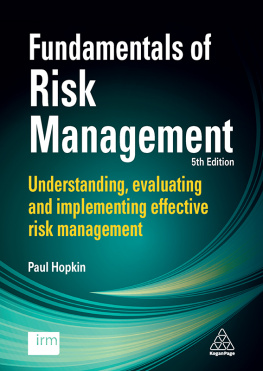Steven Cohen - Management Fundamentals
Here you can read online Steven Cohen - Management Fundamentals full text of the book (entire story) in english for free. Download pdf and epub, get meaning, cover and reviews about this ebook. year: 2020, publisher: Columbia University Press, genre: Business. Description of the work, (preface) as well as reviews are available. Best literature library LitArk.com created for fans of good reading and offers a wide selection of genres:
Romance novel
Science fiction
Adventure
Detective
Science
History
Home and family
Prose
Art
Politics
Computer
Non-fiction
Religion
Business
Children
Humor
Choose a favorite category and find really read worthwhile books. Enjoy immersion in the world of imagination, feel the emotions of the characters or learn something new for yourself, make an fascinating discovery.

- Book:Management Fundamentals
- Author:
- Publisher:Columbia University Press
- Genre:
- Year:2020
- Rating:4 / 5
- Favourites:Add to favourites
- Your mark:
- 80
- 1
- 2
- 3
- 4
- 5
Management Fundamentals: summary, description and annotation
We offer to read an annotation, description, summary or preface (depends on what the author of the book "Management Fundamentals" wrote himself). If you haven't found the necessary information about the book — write in the comments, we will try to find it.
Steven Cohen: author's other books
Who wrote Management Fundamentals? Find out the surname, the name of the author of the book and a list of all author's works by series.
Management Fundamentals — read online for free the complete book (whole text) full work
Below is the text of the book, divided by pages. System saving the place of the last page read, allows you to conveniently read the book "Management Fundamentals" online for free, without having to search again every time where you left off. Put a bookmark, and you can go to the page where you finished reading at any time.
Font size:
Interval:
Bookmark:

MANAGEMENT FUNDAMENTALS
MANAGEMENT FUNDAMENTALS
STEVEN COHEN AND WILLIAM EIMICKE
COLUMBIA UNIVERSITY PRESS|NEW YORK

Columbia University Press
Publishers Since 1893
New YorkChichester, West Sussex
cup.columbia.edu
Copyright 2020 Columbia University Press
All rights reserved
E-ISBN 978-0-231-55085-7
Library of Congress Cataloging-in-Publication Data
Names: Cohen, Steven, 1953 September 6- author. | Eimicke, William B., author.
Title: Management fundamentals / Steven Cohen and William Eimicke.
Description: New York : Columbia University Press, 2020. | Includes bibliographical references and index.
Identifiers: LCCN 2020000811 (print) | LCCN 2020000812 (ebook) | ISBN 9780231194488 (hardback) | ISBN 9780231194495 (trade paperback)
Subjects: LCSH: Management.
Classification: LCC HD31.2 .C636 2020 (print) | LCC HD31.2 (ebook) | DDC 658dc23
LC record available at https://lccn.loc.gov/2020000811
LC ebook record available at https://lccn.loc.gov/2020000812
A Columbia University Press E-book.
CUP would be pleased to hear about your reading experience with this e-book at .
Cover design: Noah Arlow
To Marvin, Shirley, and Lilythe past and the future. And to Karen, Annemarie, and Sugar Raygood things come in threes.
O rganizational management is a widely misunderstood activity that many of us, at one time or another, have experienced, exercised, or maybe even fallen victim to. In modern media, management has been depicted with humor (think of the pointy-haired boss in the cartoon Dilbert); provided entertainment (as in the reality show The Apprentice); and inspired (such as through a news story about a fire chief leading a crew into a burning building and saving a family).
This book is a primer on the fundamental elements of managementa periodic table for the field, if you will. As such, Management Fundamentals surveys the basic responsibilities of managing organizations and examines the general role of the manager, dividing their work into three main areas of practice:
- Operation. Ensuring the organization runs smoothly and effectively and engages with the environment to generate resources.
- Opportunity. Taking advantage of open doors and protecting the organization from attack.
- Organization in society. Shaping the organizations place in society, which includes managing stakeholder relations, politics, and ethical standards, and preparing for the future of work itself. As work changes, the role of the manager changes as well.
This book defines the practices and concepts that comprise modern management and define contemporary managers. We avoid contemporary examples, however; instead, we identify and explain the broader essential elements of management, creating a roadmap for new managers and a reference tool for experienced ones. To do so, we ask and answer these seven questions:
- What are the fundamental elements of the work of management and managers?
- What tools and techniques can they employ as they do the work of management?
- How does a manager ensure that the organization he or she manages generates enough resources to survive and thrive?
- How does a manager ensure that the organization develops and maintains functional relationships with customers, clients, and stakeholders?
- How can a manager maintain personal integrityand the integrity of his or her organization?
- How has the modern technological world and global economy changed the work of managers?
- What is the future of work and its management?
Management Fundamentals builds on our decades of experience as managers and management professors, combining what we have learned both in practice and in the literature about effective management. Further, it is a management book for organizations and managers in all three sectors: public, private, and nonprofit. We do not assume a profit motive, a public purpose, or a mission-orientationinstead, we write as if all three motivations are in play.
Each chapter focuses on a key element of effective management. The first chapter defines management and looks at the major trends in management, beginning with those in the early twentieth century. We discuss how Taylorism and the Hawthorne Experiments influenced the basics of management and the trends that followed. While these theories were advancing, four major developments simultaneously defined modern management: accounting, computing and low-cost communication, the global economy and global supply chains, and sustainability.
Why these four developments? Financial management and low-cost communication made modern organizational networks and cross-sector partnerships possible. Physical proximity is no longer a prerequisite for management influence and control, enabling global supply chains and new ways of accomplishing organizational goals. On a more crowded, resource constrained planet, an organizations cost structure is dramatically impacted by its energy bills and its production of pollution and waste. Sustainable practices are not only essential for stemming climate change and creating a healthier environment, but as an organization saves energy, reduces pollution, and minimizes waste, it significantly improves its bottom line. While management continues to evolve, the basic concepts of management persist. The rest of the chapter outlines and describes these concepts.
The second chapter begins with leadership within management, drawing upon Selznicks theory of the Role of the Leader to show where leaders fit in an organization. This discussion is followed by a section on decision-making: it outlines the ideal process for decision-making and looks at how managers can make better decisions by using tools to avoid mistakes and enhance the probability of success. The chapter then moves on to organizational communication and how to build an internal communication strategy. Finally, the last section focuses on risk management, defining what risk is, why managers should worry about risk and uncertainty, and how they can identify, evaluate, and manage risks.
Money is the single most important tool a manager has to influence an organizations behavior and is a sure way of tracking organizational priorities and activities. For this reason, in the third chapter, we explore budgets and financial management, defining and discussing the different types of budgets used by organizations. We also explore financial management or control systems and how they can influence behavior.
covers human resource management, organizational structure, and standard operating procedures. In human resource management, we look at the centrality of influencing, motivating, and coordinating peoples work. How can one find and hire excellent staff, motivate staff, and deal with inadequate staff? Next, we outline organizational structure and analyze how it can help managers manage. We also consider the limits of this tool and discuss when a manager should or should not use it. In the area of standard operating procedures, we examine how work is performed in reporting relationships according to organizational norms and routines. Leaders and senior managers may not do this work directly, but they must set guidelines on how this work should be done and then track and evaluate how well it is being done. As such, we discuss how work gets designed, completed, and changed over time.
Font size:
Interval:
Bookmark:
Similar books «Management Fundamentals»
Look at similar books to Management Fundamentals. We have selected literature similar in name and meaning in the hope of providing readers with more options to find new, interesting, not yet read works.
Discussion, reviews of the book Management Fundamentals and just readers' own opinions. Leave your comments, write what you think about the work, its meaning or the main characters. Specify what exactly you liked and what you didn't like, and why you think so.











